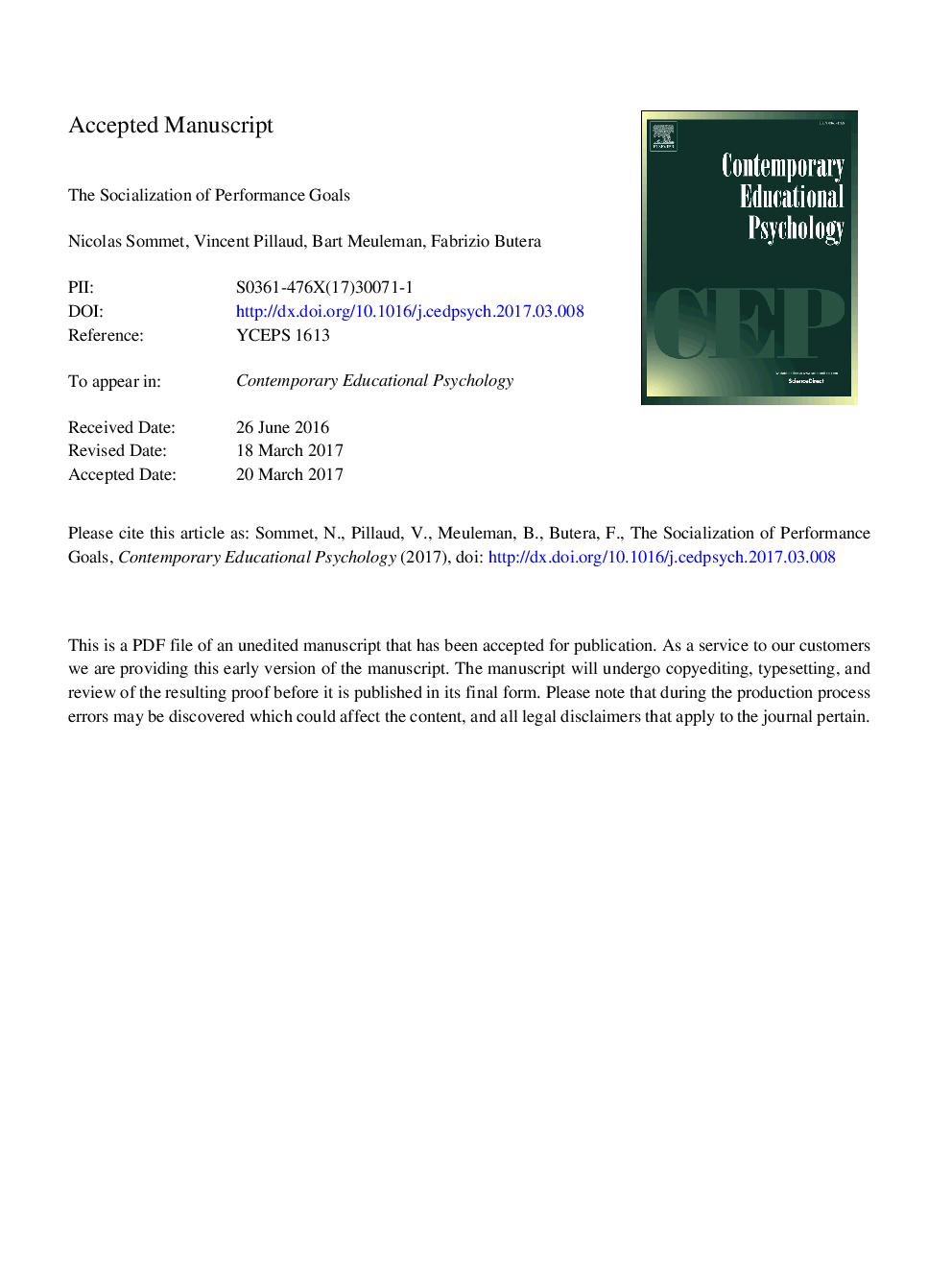| Article ID | Journal | Published Year | Pages | File Type |
|---|---|---|---|---|
| 4937914 | Contemporary Educational Psychology | 2017 | 70 Pages |
Abstract
How are competitive goals transmitted over time? As most competence-relevant contexts (e.g., school) are hierarchy-relevant (e.g., teacher/students), supervisors' performance-approach goals (desire to outperform others) should play a major role. We formulated a performance goals socialization hypothesis: The higher a supervisor's performance-approach goals, the stronger the effects of time on followers' performance-approach and -avoidance (desire not to be outperformed by others) goals. Study 1, involving coaches and their soccer players, showed that indeed a performance goals socialization phenomenon exists. Study 2, involving thesis supervisors and their Ph.D. students, showed its consequences: performance goals socialization reduced subordinates' motivation and well-being over time. Study 3, involving video game team leaders and their players, showed its enabling condition: the stronger the subordinates' identification to their team, the more pronounced the performance goals socialization. Study 4, involving schoolteachers and their pupils, showed its directional moderator: the higher the subordinates' perceived self-competence, the higher the change in performance-approach goals over time, and the lower that in performance-avoidance goals. It is then crucial to consider social hierarchy when studying goal formation.
Related Topics
Social Sciences and Humanities
Psychology
Applied Psychology
Authors
Nicolas Sommet, Vincent Pillaud, Bart Meuleman, Fabrizio Butera,
